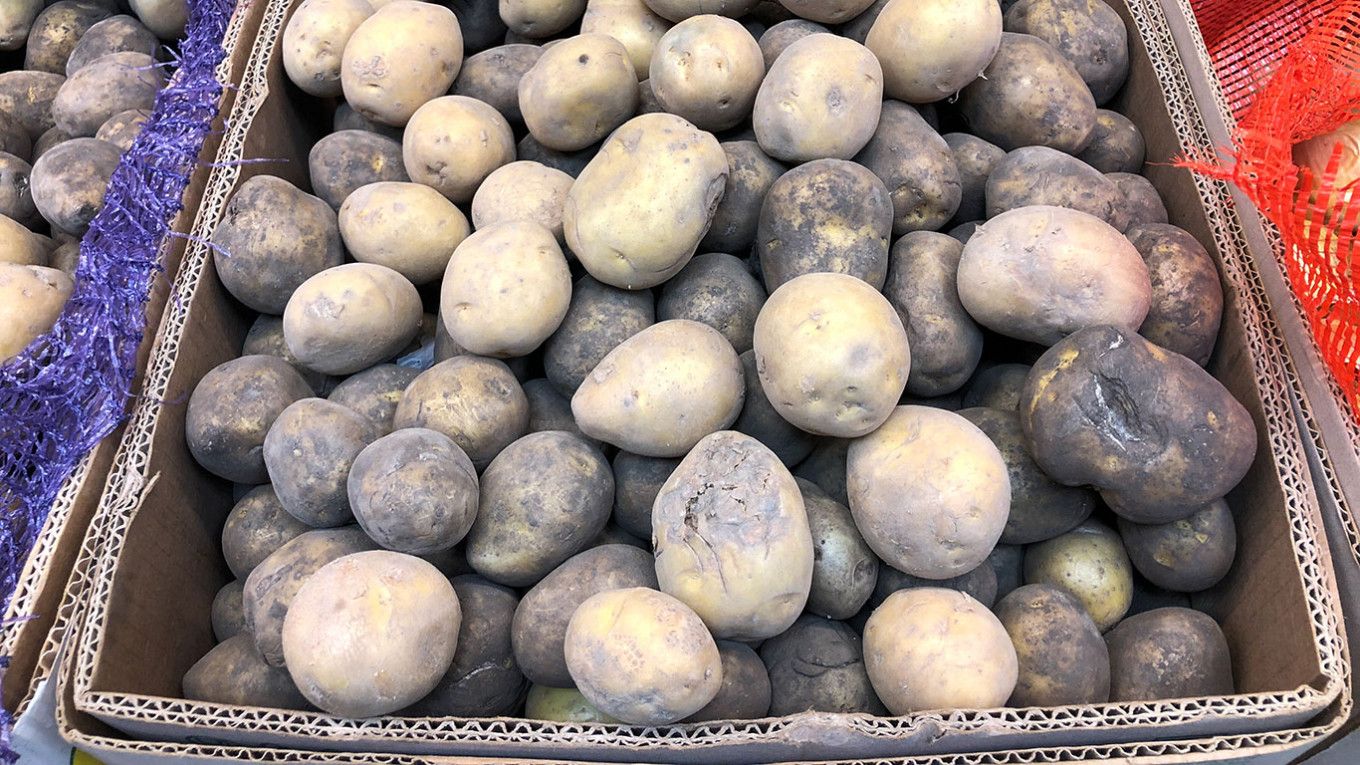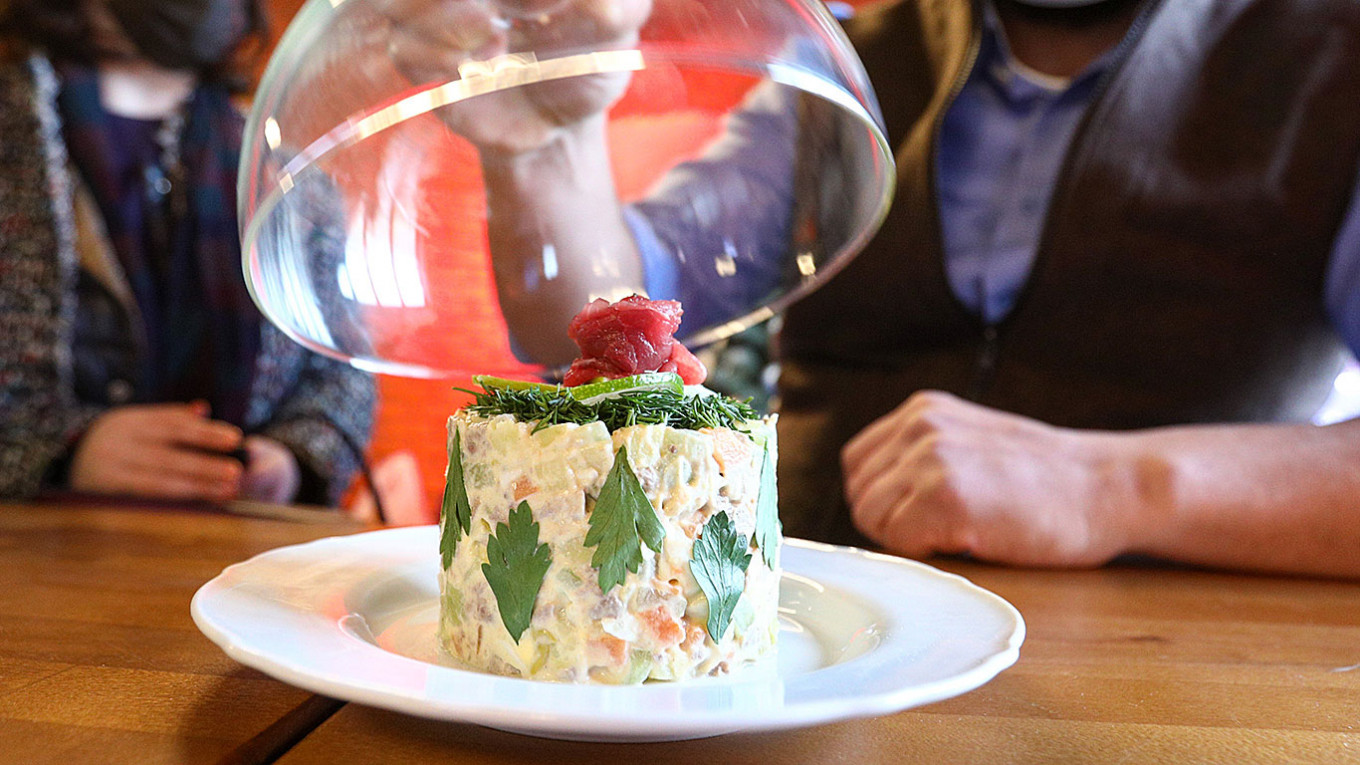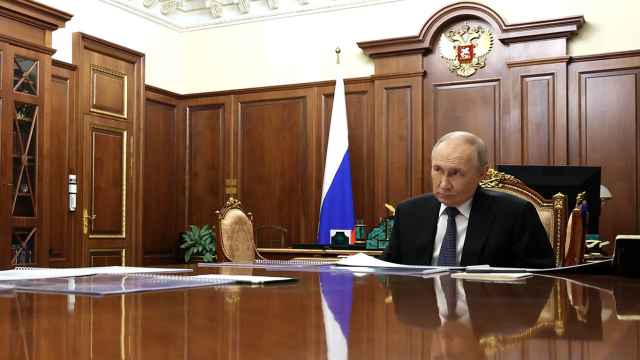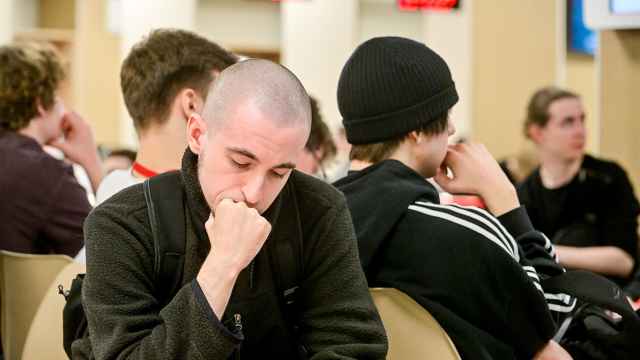Russians are bracing for an expensive festive season as prices for some of the nation’s most-loved New Year dishes surge and high inflation continues to eat into household budgets.
Olivier salad — a traditional mayonnaise-laden dish of potato, eggs and meat — is set to cost 15% more than last year, according to an analysis of official government price data by the Izvestia newspaper.
And the ingredients for herring under a fur coat — another traditional Russian New Year dish of pickled herring layered under vegetables and topped with bright purple beetroot — are set to cost 25% more than last year.
The so-called “Olivier Index” — which tracks the cost of ingredients needed to make four servings of the salad — is used as a bellwether indicator of the cost of living for Russian families.
Inflation is currently running at a six-year high in Russia, with food prices having risen dramatically over the last 18 months. That has hit Russian households — a majority of which have no savings — hard, coming on the back of almost a decade of falling or stagnating living standards.
The rising costs have also been a political headache for the Kremlin, which responded by imposing price quotas and curbing agricultural exports — measures economists warned would only exacerbate the problem over the long run.

The country’s Potato Union also warned Monday that Russia faces a potato shortfall in the coming months. Harvest levels are flat compared to last year, but raw material prices have risen by as much as 50%, some firms told Russia’s Agricultural Ministry at a meeting last week, the Kommersant business paper reported. Potato prices have risen 79% over the last 12 months.
Prices for caviar — another favorite New Year delicacy across Russia — have also hit a record high ahead of the holidays.
Russia’s agriculture industry — which has boomed since the Kremlin imposed countersanctions on Western food imports in 2014 — has faced a difficult year, experts say, with the pandemic disrupting the supply of seasonal migrant workers from nearby countries and the global supply chain crunch driving up prices for key equipment and supplies such as fertilizer.
A Message from The Moscow Times:
Dear readers,
We are facing unprecedented challenges. Russia's Prosecutor General's Office has designated The Moscow Times as an "undesirable" organization, criminalizing our work and putting our staff at risk of prosecution. This follows our earlier unjust labeling as a "foreign agent."
These actions are direct attempts to silence independent journalism in Russia. The authorities claim our work "discredits the decisions of the Russian leadership." We see things differently: we strive to provide accurate, unbiased reporting on Russia.
We, the journalists of The Moscow Times, refuse to be silenced. But to continue our work, we need your help.
Your support, no matter how small, makes a world of difference. If you can, please support us monthly starting from just $2. It's quick to set up, and every contribution makes a significant impact.
By supporting The Moscow Times, you're defending open, independent journalism in the face of repression. Thank you for standing with us.
Remind me later.






